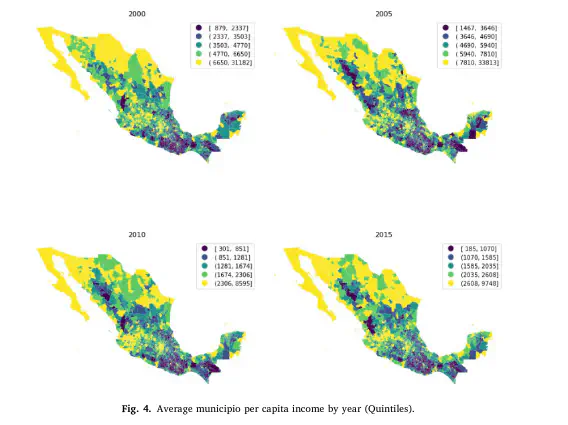
Abstract
In this paper we examine the relationship between spatial inequality, place mobility, and spatial polarization in Mexico. We use data for 2457 Mexican municipios from 2000 to 2015. We apply classical and spatial Markov chains to measure spatial income dynamics and we employ a decomposition of spatial inequality to measure spatial polarization. In doing so, we ask the following questions: Has spatial inequality increased across Mexican municipios since 2000? What has been the role of place mobility in any changes in overall spatial inequality? Finally, we examine what the main components of place mobility have been over this period. We find evidence of a strong spatial dependency between municipios that has increased over time but we find no clear pattern at the state scale. Intra-state municipal inequality has relatively declined while Inter-state municipal inequality polarization has increased. We also find clear evidence that transitional dynamics of municipio incomes are influenced by spatial context. Substantial evidence shows that municipio income mobility is driven by a growth component that could be likely reflecting the devaluation of the peso over this period. Exchange mobility is found to be a more important component of overall place mobility than dispersion (inequality) mobility.